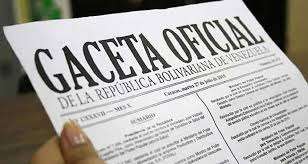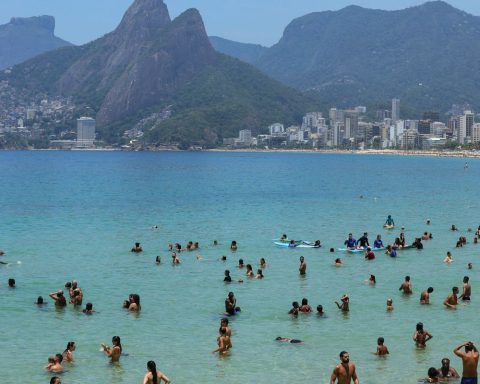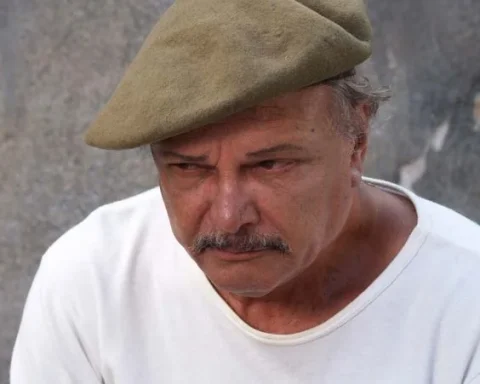The National Party and Cabildo Abierto closed ranks this Tuesday to promote the comprehensive home prison project drafted by white senator Carmen Asiaínas an alternative to the one presented at the beginning of the legislature by those led by Guido Manini Ríos.
“Without prejudice to the fact that I may make any other suggestion in the future, I believe that this project goes in the right direction that criminal law should go”the lobbyist Guillermo Domenech concluded in the Constitution commission after making some comments on the text of his nationalist colleague.
The senator from Cabildo Abierto declared himself in favor of house arrest not being a power of the judge in the matter, but that he should always order it and “only deny it when there are negative reports of a medical or psychological nature.” “These are situations so extreme that they fully justify house arrest in general,” said the leader.
The lobbyists promoted house arrest for those over 65 years of age, which intensified criticism from the Broad Front for allowing the prisoners of Domingo Arena -for crimes committed during the dictatorship- to serve sentences at home. The National Party, through Asiaín, elaborated a project that not only refers to the age of the convicted -raises the limit to 70, and from 65 the judge can determine it- but also to pregnant women, imprisoned women with children at charge and lactating.
According to the initiative, house arrest is not applicable to prisoners for sexual crimes, domestic and gender violence, crimes against humanity, for crimes related to drug trafficking and when there is recidivism. Although it leaves out crimes against humanity, with the project of the whites, the repressors in Domingo Arena are also favored because they are not prosecuted for that crime.
The premise of the nationalists is that the new articles are comprehensive and aligned with other legislation in the world. Asiaín reported that in the interviews they ask him if people over 70 who commit crimes will automatically be able to request house arrest. “Perhaps this should be an issue to review and determine that he has to serve part of the sentence,” he acknowledged, adding that “it will be open to everyone’s contributions.”
“If they are under 70 years of age, it is not mandatory; the party can request it, they will mediate expert reports, a hearing by the Public Ministry and the judge will decide. It is optional for the judge,” Asiaín explained.
The crosses with the FA and the reproach of Bianchi
The white senator Graciela Bianchi clarified before her colleagues that the project has not yet been negotiated in the coalition. “We do not have the criteria to accelerate this issue at a forced march, at all. What we want is, in effect, to analyze it calmly, lower some things that were said and that, suddenly, from the other bill could be induced more or not,” he said and anticipated: “Not because we have the votes we are going to do it by forced march, far from it; it is a very delicate issue”.
The emepepista Charles Carrera unleashed the debate when he asked Asiaín what would be left of the 28 cases -reported months ago by La Diaria- of prisoners for crimes during the dictatorship who could be released, including Rodolfo Gregorio Álvarez (nephew of ” Goyo” Álvarez), Jorge Pajarito Silveira, Jorge Gundelzolph, among others.
The lobbyist Domenech did not remain silent: “Do we not forgive the murderers of Pascasio Báez? Do we not forgive the murderers of Jaime Oroza García? Do we not forgive the murderers of Hilda Quirino? In short, I can make a long list of murders”. “What are we going to do in this country? Are we going to continue in an eternal fight over these issues? I think it is very disgusting to have tortured or murdered a person, whether from the left or the right, however, it would seem that we have as the view placed on certain soldiers” he accused.
The senator wondered if the prisoners at Domingo Arena were not really “sent to fight an armed guerrilla phenomenon.” “Isn’t it true that the prosecutor in the case has said that he has formalized and convicted based on mere evidence? These people have lived 30 or 40 years in society without committing any crime,” he asserted, adding that he had “many doubts.” in Justice.
In her turn, the nationalist Asiaín raised that Carrera’s question did what the National Party “avoided” doing: “thinking and looking at who was going to benefit and harm by name and surname.” “We try to abstract from that, because we understand that the legislator should not be looking at that, because it would be as discriminatory to make a law to favor certain people as to write a law so that it would not favor who otherwise would have favored “he excused himself.
Asiaín recriminated that already during the Broad Front governments, the judge granted house arrest to prisoners for crimes during the dictatorship. “Senator Carrera, when he referred to the entire file of those people whom he cited, he spoke of twenty-eight homicides, repeated abuse of authority, etc. This will depend on whether there was a single crime, in which case you will be able to enter and in the event that there is a recidivism, you will not enter.”justified.
Bianchi meanwhile assured that he does not agree with the so-called “theory of the two demons” and recalled that he has fallen companions. “Nibia Sabalsagaray met at my house, we were friends. (…) In my house, being single, the entire finance committee of the communist youth would meet. (…) Precisely, Fernando Miranda was the one who managed the finances of the party at the time he disappeared, “she recalled, and He assured that “the victims do not care where the bullet came from or who did the torture”.
The senator recalled having fought twice to repeal the expiration law in her time together with Germán Araujo, and that it was not until 2009 that she understood that she was “wrong” and that the public had said “enough is enough” and that this time no longer it had been “out of fear”, as it had been – in his opinion – with the green vote decades ago.
“In this case, it is not that we are trying to protect the prisoners of Domingo Arena that, on the other hand, we get bored of saying that there was no one prosecuted or convicted of crimes against humanity. In reality, Gavazzo, Cordero and a host of others died in house arrest by the previous regime and under leftist governments.. Cordero was laughing in our faces from his apartment,” he accused.
The legislator concluded that the issue “confronts us as a society” and that the current project only wants to “establish a comprehensive house arrest regime”, but that by doing so: “Páfate!, the list of the people of Domingo Arena is read to us. I don’t know what to do so that it doesn’t always go there, on this issue and on others, but especially on this one.”
Domenech, meanwhile, summarized: “Here we have the need to make a sacrifice based on peace and harmony and continue enjoying these forty or fifty years that we have had of democracy.” The commission will ask for the opinion of the chair of procedural law.















